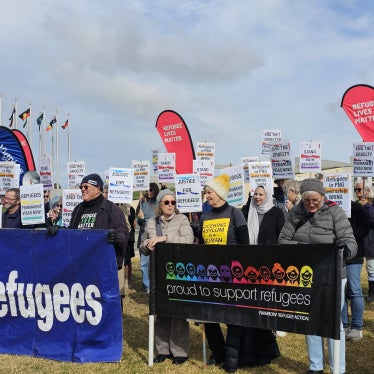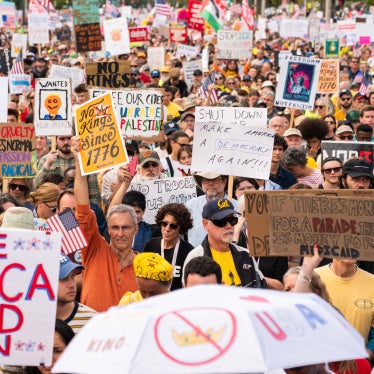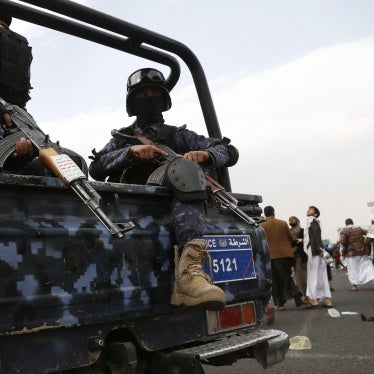(New York) - The Clinton Administration should avoid setting a firm date for a summit meeting with President Jiang Zemin of China until Beijing takes significant, concrete steps to improve its dismal human rights performance, Human Rights Watch/Asia said today.
"The Administration would no doubt welcome some token prisoner releases or other gestures as window dressing, but the White House is unwilling to say that without real human rights progress, there will be no summit," said Mike Jendrzejczyk, Washington director of Human Rights Watch/Asia. "The Administration risks throwing away the enormous leverage of a summit meeting, rather than using it to get something meaningful in return on human rights. High level exchanges can be useful, but Clinton shouldn't give away a photo op in the Oval Office for free." He pointed out that Vice President Al Gore's visit to Beijing last March produced no progress on human rights; a summit meeting is even more important to Beijing, given the prestige and propaganda value attached, and the Administration should make a summit clearly conditional on human rights progress.
Human Rights Watch responded strongly to reports from Kuala Lampur, Malaysia, where U.S. Secretary of State Madeleine Albright discussed the summit with the Chinese Foreign Minister, Qian Qichen, over the weekend; U.S. spokespeople said that October 28 was the probable date for the meeting. Meanwhile, a working level visit to Beijing by U.S. officials has just concluded, seeking to lay the groundwork for the summit. A crucial congress of the Chinese Communist Party is also due to take place in October; a summit meeting in the U.S. would be viewed as a crowning achievement by Jiang Zemin.
The Clinton Administration, meanwhile, is under pressure to show that its policy of "constructive engagement" can yield results. At their meeting in Manila last November, President Clinton and President Jiang agreed in principle to reciprocal visits, but U.S. officials at that time avoided setting a date until after the reversion of Hong Kong on July 1. Now that the handover is past, the momentum towards a summit seems to be increasing, leading to a visit to China by Clinton sometime next year. "Resuming a formal dialogue on human rights, or releasing a few dissidents is simply not sufficient," said Jendrzejczyk. "There should be no Oval Office meeting until Beijing takes significant steps, such as allowing access to Tibet and Xinjiang by human rights monitors, repealing or amending state security laws, providing access to Chinese detention facilities by international humanitarian agencies, signing and ratifying without reservations two U.N. human rights conventions (the Covenant on Civil and Political Rights and the Covenant on Economic, Social and Cultural Rights), releasing large numbers of Chinese and Tibetan political and religious prisoners, and protecting basic civil liberties in Hong Kong."
The organization also warned that the U.S. might be tempted at a summit meeting to bargain away a resolution at next year's United Nation's Commission on Human Rights in Geneva, and urged the U.S., the European Union, Japan and other governments not to abandon action on China at the highest U.N. body responsible for monitoring compliance with international human rights standards.








